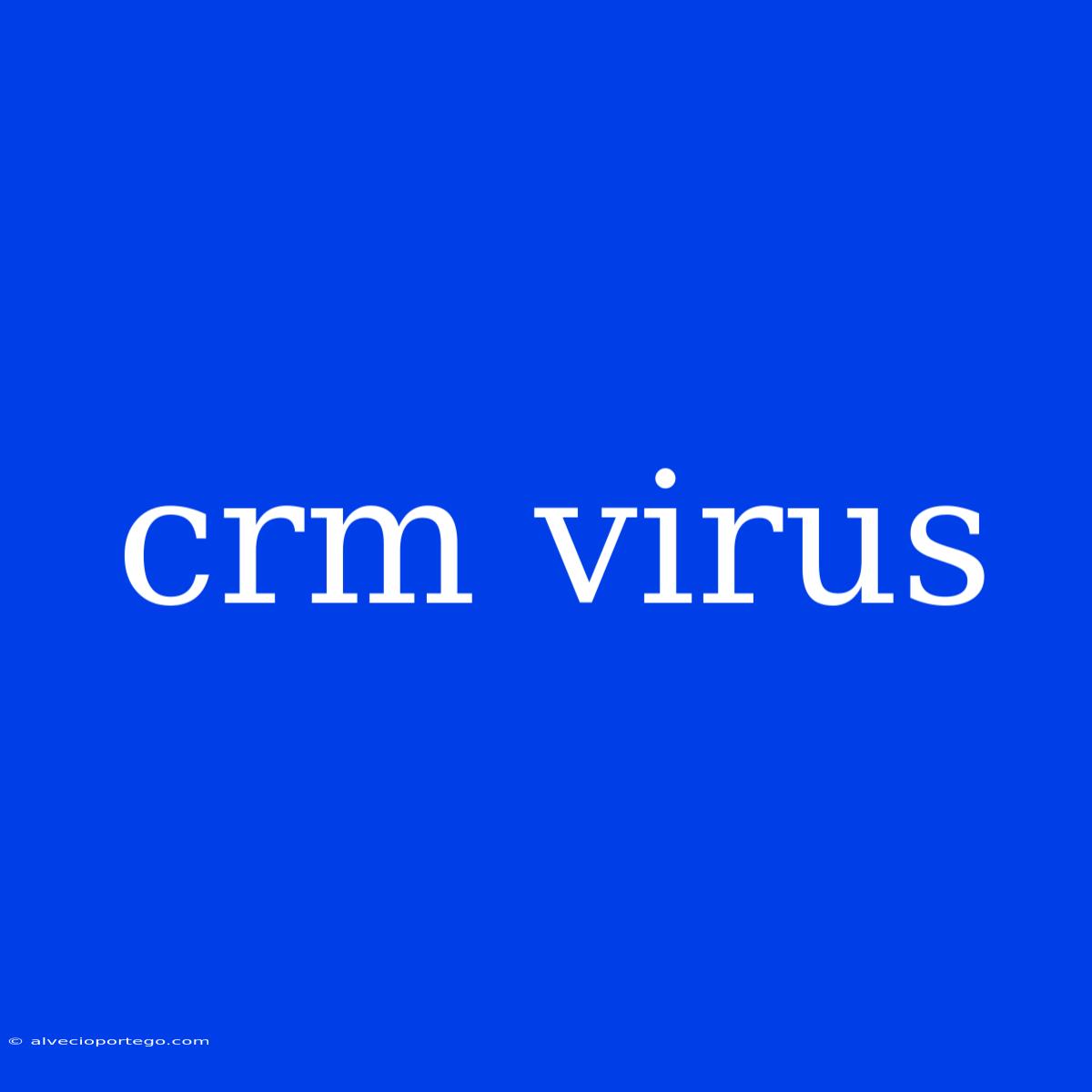The Hidden Threat: Understanding the CRM Virus
The world of customer relationship management (CRM) is a vital hub for businesses, holding valuable customer data and facilitating crucial operations. But just like any digital system, it's vulnerable to attack. Enter the "CRM Virus," a term encompassing a wide range of malicious threats targeting CRM systems.
What is a CRM Virus?
While a "CRM Virus" doesn't technically exist as a specific malware, the term captures the essence of malicious activity targeting CRM systems. This encompasses:
- Malware Infections: Viruses, Trojans, and ransomware can infiltrate CRM systems, stealing data, encrypting files, or disrupting operations.
- Data Breaches: Hackers exploit vulnerabilities to gain unauthorized access to sensitive customer information, such as names, addresses, financial details, and purchasing history.
- Denial-of-Service Attacks: These attacks overwhelm CRM servers, making them inaccessible for legitimate users, causing business disruptions.
- Phishing and Social Engineering: Attackers use deceptive tactics to trick employees into revealing login credentials, compromising accounts and opening doors for further attacks.
Why are CRM Systems Targeted?
CRM systems are prime targets for hackers due to the valuable data they store. This data can be used for:
- Identity Theft: Stolen customer information can be used to create fake identities for fraudulent activities.
- Financial Gain: Hackers can sell stolen data on the dark web or use it for targeted phishing attacks to steal money.
- Competitive Advantage: Competitors can exploit stolen data to gain insights into customer preferences, marketing strategies, and pricing strategies.
- Disruption and Extortion: Hackers can disrupt CRM operations through denial-of-service attacks, demanding ransom for restoring service.
Recognizing the Signs of a CRM Virus
Here are some warning signs to be aware of:
- Unusual system behavior: Slow performance, unexpected errors, or unexplained crashes.
- Data discrepancies: Inaccurate customer information, missing data, or duplicate entries.
- Unauthorized access: Suspicious login activity, new user accounts, or suspicious data changes.
- Increased network traffic: Unexplained spikes in network activity might indicate a malware infection.
- Phishing emails: Be vigilant about suspicious emails claiming to be from your CRM provider or requesting sensitive information.
Protecting Your CRM System
Implementing strong security measures is crucial to protect your CRM system from these threats:
- Use strong passwords and two-factor authentication: Make it harder for hackers to access your accounts.
- Keep your software up-to-date: Regularly update your CRM system and its plugins to patch vulnerabilities.
- Implement access control policies: Restrict access to sensitive data and limit user privileges based on roles.
- Train employees on security best practices: Educate employees about phishing scams, social engineering tactics, and best practices for handling sensitive information.
- Back up your data regularly: Regular backups allow you to restore your data in case of a data breach or ransomware attack.
Remember: The CRM virus is a serious threat. By understanding the risks and implementing appropriate security measures, you can safeguard your business and your customers' valuable data.

